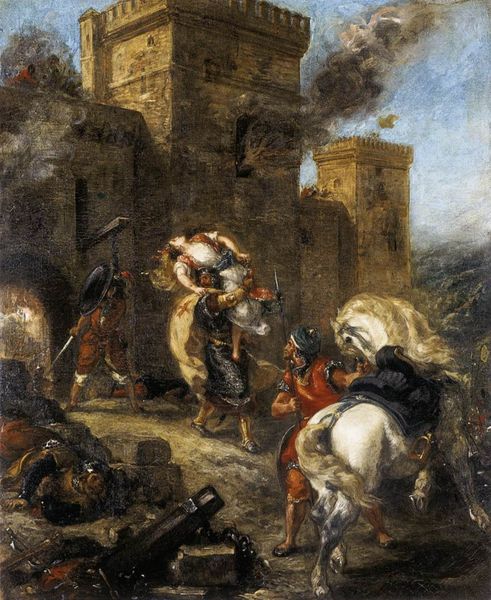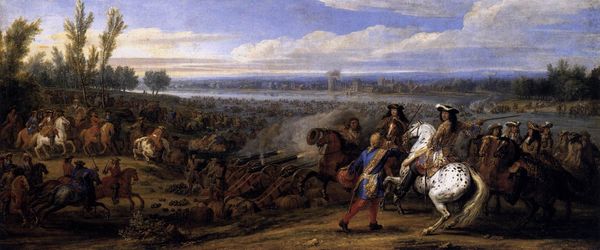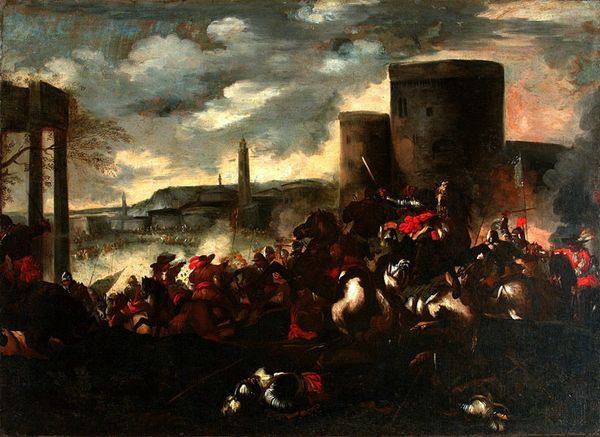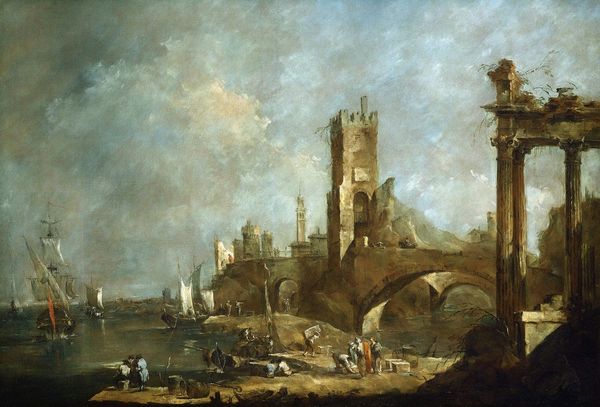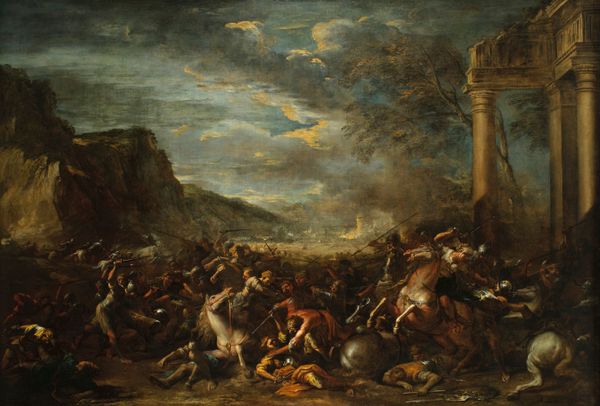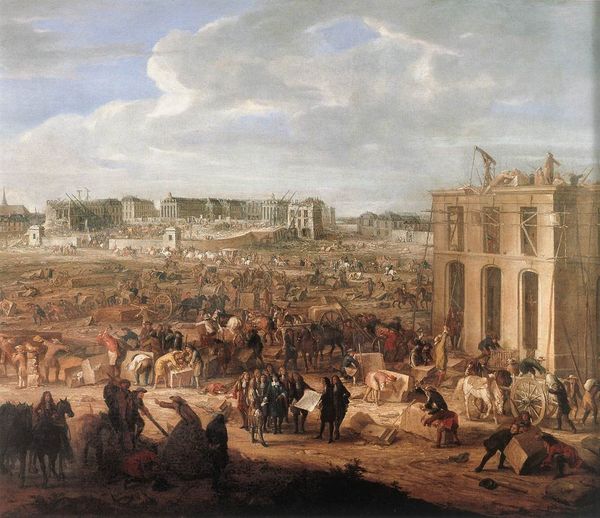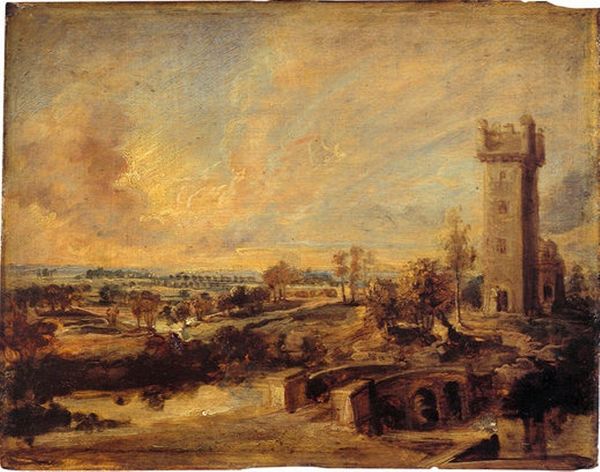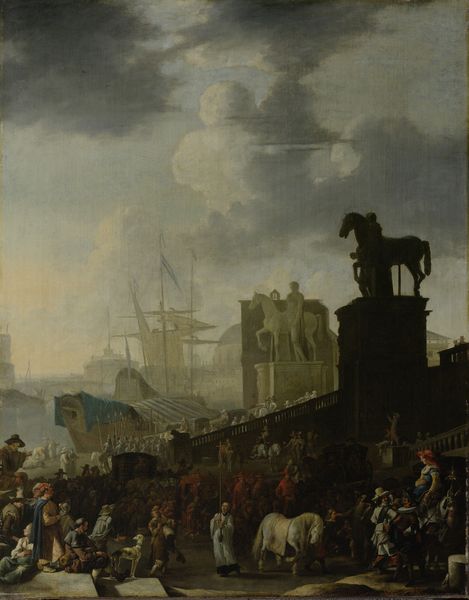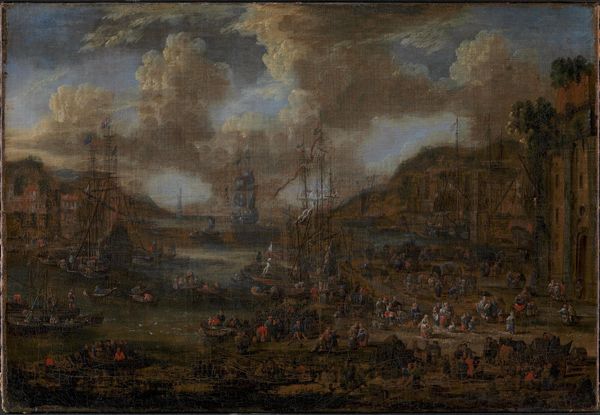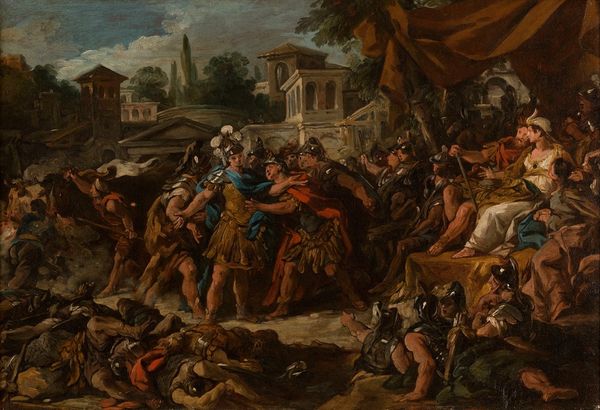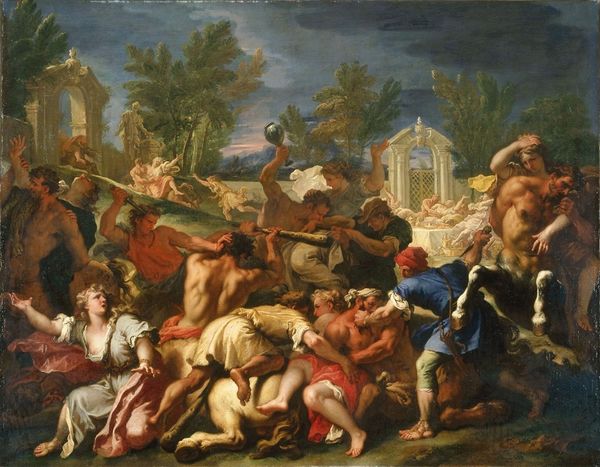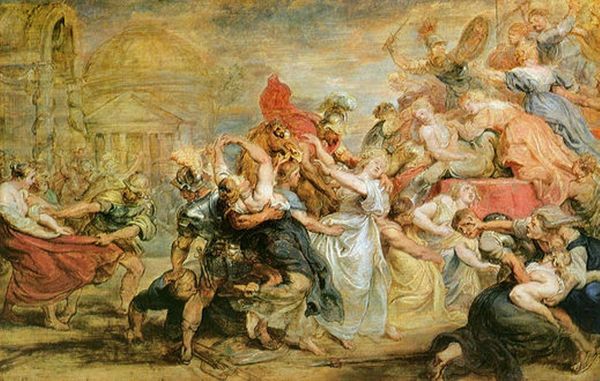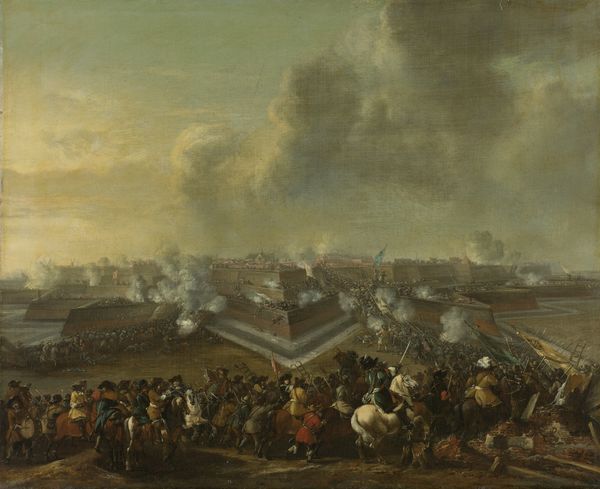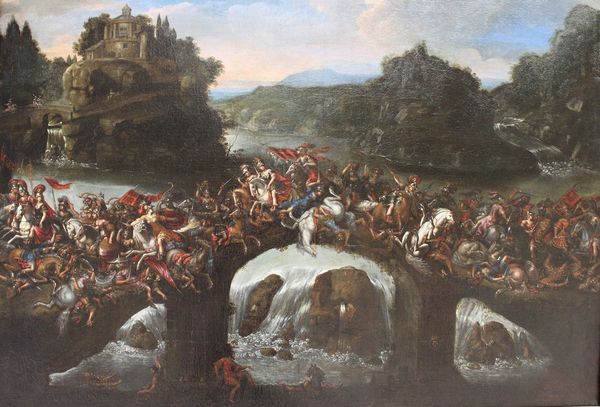
#
sky
#
abstract painting
#
charcoal drawing
#
impressionist landscape
#
possibly oil pastel
#
oil painting
#
fluid art
#
acrylic on canvas
#
underpainting
#
painting painterly
#
watercolor
Dimensions: 72 x 106 cm
Copyright: Public domain
Curator: As we gaze upon Peter Paul Rubens' "Tournament in front of Castle Steen," created around 1637, currently held at the Louvre, one is immediately struck by the dynamism. Editor: Absolutely! It’s incredibly tactile. I am drawn to how the paint application conveys the chaotic energy of the tournament. You can almost feel the grit and sweat. It screams materiality and labour. Curator: Indeed. Observe how Rubens constructs a vibrant choreography, layering figures, horses, and the architecture itself to orchestrate a balanced yet frenetic visual experience. The color palette, while earthy, uses sharp contrasts to create depth and visual interest. Editor: The application of those earthy pigments is also intriguing. I'm curious about where Rubens sourced his pigments, how they were processed. That act of pigment creation is crucial, informing the entire material narrative, the physicality of representation. Curator: Such detail enriches the social implications as well. This wasn't a common, everyday activity. Depicting the aristocratic pageantry is essential to the subject. Observe how it elevates the spectacle itself, inviting the viewer into a world of noble leisure. Editor: Certainly. And from a purely physical production aspect, one can only speculate on the resources invested, the man hours, and the systems in place to make it possible. Highlighting not just an elite pastime, but also all the supporting labour structures behind them. It’s like excavating a cultural record one brushstroke at a time. Curator: It’s certainly a complex intersection of technique, symbol, and cultural insight. Reflecting on the details—the brushstrokes, the colours, the intentional juxtaposition of figures. I come to see the formal elements creating meaning through sheer craft. Editor: Ultimately, this analysis grounds us in how materials were handled and deployed, enabling narratives of power, pleasure, and privilege to come alive, which informs what this piece meant then, and can still mean today.
Comments
No comments
Be the first to comment and join the conversation on the ultimate creative platform.
